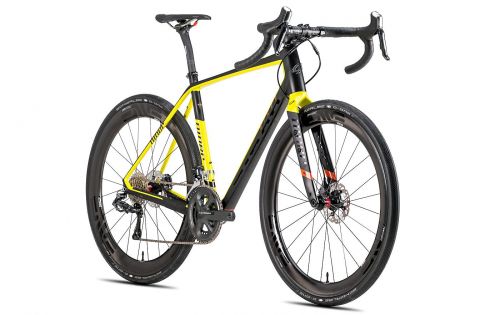DENVER, Colo. (BRAIN) — Niner Inc. filed for Chapter 11 bankruptcy protection on Monday ahead of a planned acquisition by a Colorado investor group.
The company had announced Nov. 22 that a group had agreed to purchase the company, not mentioning the planned Chapter 11 filing or naming the investors.
On Tuesday, it filed a petition with the Colorado Bankruptcy Court in Denver listing assets of $9.8 million and liabilities of $7.9 million.
In an interview Wednesday, company co-founder and president Chris Sugai said the Chapter 11 filing was the most efficient way to sell the company to the group, which is called Columbia Basin Partners.
"This was the cleanest and fastest way to do it," he told BRAIN, noting that the court filings show the company plans to emerge from the bankruptcy by Jan. 30 and to complete the sale prior to that date.
In a previous interview, Sugai said Niner had been looking for an investment for some time.
"To remain competitive we felt an investment was necessary, in order to greenlight some projects we feel are important," he told BRAIN. He said he was happy with the agreement reached with the investors but declined to say whether he would retain any equity in the company he co-founded in 2004.
In that interview, he said Niner had been profitable for five of the last six years, but lacked resources to invest in R & D and marketing. He noted that Niner was competing with larger brands, including the major international full-line bike companies and niche brands like Santa Cruz, which was purchased by Pon Group in 2015.
The bankruptcy filing opens the possibility that other entities could make a bid for the company. Sugai said he was aware of that risk and said he hopes Columbia Basin Partners succeeds in buying the brand. "We've been working with them for quite a while," he said.
He declined to identify the partners beyond saying they are three experienced businessmen who are also bike enthusiasts. He said they are committed to growing the company.
"We will be a stronger company when we come out of this. They are not buying the company to strangle it; they like the company and they want to grow it. We think that once we can see a renewal in advertising and R & D, Niner can continue to grow."
On its website, Columbia Basin Partners said it was not a "fix and flip" investment firm. "(W)e acquire businesses for the long haul," the site says.
Sugai said Niner will remain committed to sales through independent dealers in the U.S. and its international distributors. according to the filing, Niner has about 400 U.S. dealers and sells in 35 countries. International sales account for approximately 30 percent of its sales volume, with Europe representing approximately 13 percent of total sales.
Sugai said he didn't expect the bankruptcy to change the brand's relationship with its vendors.
A background section of Niner's bankruptcy petition also sheds light on Niner's past and hopes for the future.
"Although the Debtor has achieved tremendous growth since inception, an overleveraged balance sheet has stalled growth over the past few years as the Debtor has needed to focus on making principal and interest payments on debt rather than investing in growing the business," the filing reads. "The Debtor has been engaged in an extensive pre-petition marketing campaign and has obtained an initial stalking horse bid for the sale of its assets. Through the Chapter 11 Case, the Debtor seeks to sell substantially all its assets before the end of January 2018 in accordance with 11 U.S.C. § 363 in an effort to recapitalize the Debtor and continue its growth ...
"With a recapitalized balance sheet, the Debtor will be able to, among other things, hire the engineers and product managers necessary to design bikes for women, to begin offering kid’s models, to create electric mountain bikes, and continue to increase models with different wheel sizes. The Debtor also believes that by enlarging their omnichannel footprint they will be able to increase brand awareness and engagement, ultimately leading to substantial revenue growth."
Sugai founded Niner in 2004 with partner Steve Domahidy, who left the company in 2011. According to court filings, Sugai owns 68 percent of the company. Domahidy continues to own 2.5 percent and a handful of other current or past employees own small shares as well.
Related stories
- Colorado investors agree to buy Niner Nov. 27, 2017
- Former Niner president Mike Gann joins Look Cycle Group Nov. 13, 2017
- Niner co-founder Steve Domahidy pens children's book Aug. 25, 2017
- Niner Bikes and Push Industries collaborate on new shock April 19, 2017
- Niner adds reps, opens factory store in Colorado April 19, 2016
- Sugai tells Wall Street Journal he forsees growth Jan. 5, 2015
- Left behind, a mystery tool's purpose is finally revealed Oct. 22, 2014
- Niner co-founder Steve Domahidy launches new brand on Kickstarter Feb. 19, 2014


